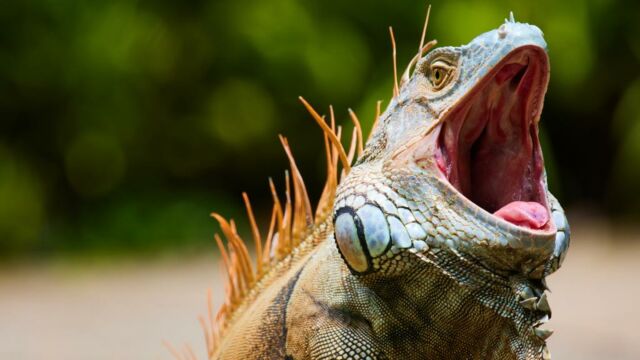Known for its sunny weather, palm trees and beaches, Florida is not usually associated with the cold. But temperatures have dropped so drastically in the last couple of days that iguanas have been falling from high up branches onto their backs.
Discover our latest podcast
Fallen iguanas
This has prompted warnings to prevent one of the animals from falling onto people walking about. Images captured show the cold-blooded reptiles completely immobile on their backs, making it look like they are completely lifeless.
Read more:
⋙ Watch: Iguana viciously attacks woman doing yoga on the beach
⋙ This Iguana Was Spotted Walking Under Water In The Galapagos
⋙ Subzero temperatures: This is what happens to your body when it's cold
Vivian Gonzalez, weather anchor for WSVN warned people to watch out for the falling reptile as they could very well injure someone depending on how big and heavy the animal is. She said:
We've entered FALLING IGUANA territory as temps. are in the widespread 40s across Broward & Miami-Dade.
Before adding:
They slow down or become immobile when temps. drop & could fall from trees, but they are not dead. Don't approach. Once the sun is out, they will move.
In a state of shock
But as it turns out, the iguanas are not actually dead. Rather, they are in a state of shock from the cold, but once enough rays of sunlight penetrate their bodies they come right back to life!
Ron Magill, communications director for Zoo Miami explained that this phenomenon is actually quite normal for iguanas to experience. He also went out to say that the size of the reptiles plays a big role in how well they can handle the cold:
The temperature threshold for when iguanas begin to go into a dormant state depends greatly on the size of the iguana. Generally speaking, the larger the iguana, the more cold it can tolerate for longer periods.















